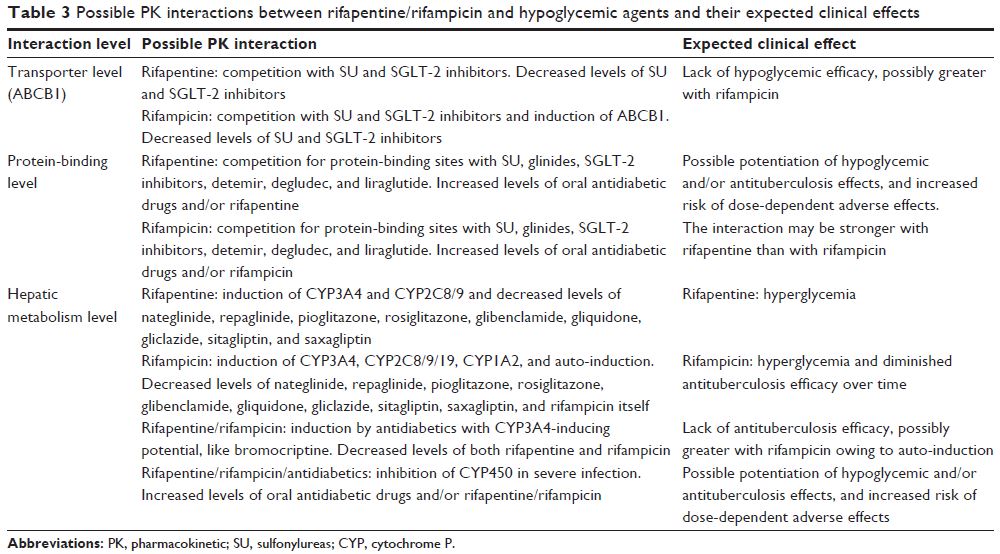108985
论文已发表
注册即可获取德孚的最新动态
IF 收录期刊
- 3.4 Breast Cancer (Dove Med Press)
- 3.2 Clin Epidemiol
- 2.6 Cancer Manag Res
- 2.9 Infect Drug Resist
- 3.7 Clin Interv Aging
- 5.1 Drug Des Dev Ther
- 3.1 Int J Chronic Obstr
- 6.6 Int J Nanomed
- 2.6 Int J Women's Health
- 2.9 Neuropsych Dis Treat
- 2.8 OncoTargets Ther
- 2.0 Patient Prefer Adher
- 2.2 Ther Clin Risk Manag
- 2.5 J Pain Res
- 3.0 Diabet Metab Synd Ob
- 3.2 Psychol Res Behav Ma
- 3.4 Nat Sci Sleep
- 1.8 Pharmgenomics Pers Med
- 2.0 Risk Manag Healthc Policy
- 4.1 J Inflamm Res
- 2.0 Int J Gen Med
- 3.4 J Hepatocell Carcinoma
- 3.0 J Asthma Allergy
- 2.2 Clin Cosmet Investig Dermatol
- 2.4 J Multidiscip Healthc

利福喷丁 (Rifapentine) 用于患有活动性和潜伏性结核病的糖尿病患者时的临床和药理学特征:我们知道详尽的情况吗?
Authors Zheng C, Hu X, Zhao L, Hu M, Gao F
Received 15 July 2017
Accepted for publication 18 September 2017
Published 11 October 2017 Volume 2017:11 Pages 2957—2968
DOI https://doi.org/10.2147/DDDT.S146506
Checked for plagiarism Yes
Review by Single-blind
Peer reviewers approved by Dr Amy Norman
Peer reviewer comments 3
Editor who approved publication: Dr Qiongyu Guo
Abstract: Rifapentine
is a rifamycin derivate approved by the US Food and Drug Administration in 1998
for the treatment of active, drug-susceptible tuberculosis (TB). In 2014,
rifapentine was approved for the treatment of latent TB infection in patients
at high risk of progression to active disease and is currently under evaluation
by the European Medicines Agency. Expanding indications of rifapentine largely
affect diabetes patients, since about one-third of them harbor latent TB.
Clinical consequences of rifapentine use in this population and potentially
harmful interactions with hypoglycemic agents are widely underexplored and
generally considered similar to the ones of rifampicin. Indeed, rifapentine too
may decrease blood levels of many oral antidiabetics and compete with them for
protein-binding sites and/or transporters. However, the two drugs differ in protein-binding
degree, the magnitude of cytochrome P450 induction and auto-induction, the
degree of renal elimination, and so on. Rifapentine seems to be more
suitable for use in diabetes patients with renal impairment, owing to the fact
that it does not cause renal toxicity, and it is eliminated via kidneys in
smaller proportions than rifampicin. On the other hand, there are no data
related to rifapentine use in patients >65 years, and hypoalbuminemia
associated with diabetic kidney disease may affect a free fraction of
rifapentine to a greater extent than that of rifampicin. Until more
pharmacokinetic information and information on the safety of rifapentine use in
diabetic patients and drug–drug interactions are available, diabetes in TB
patients treated with rifapentine should be managed with insulin analogs, and
glucose and rifapentine plasma levels should be closely monitored.
Keywords: rifamycin, antituberculosis treatment, glucose intolerance,
hyperglycemia, safety
